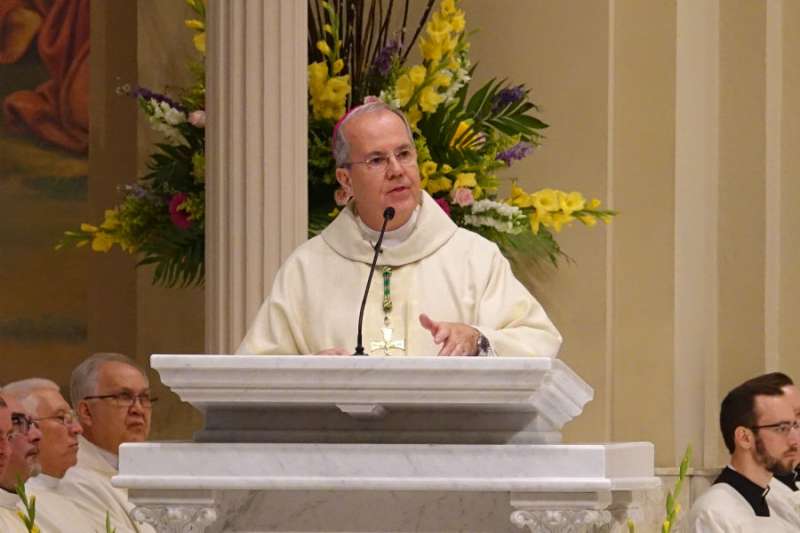Religious intolerance and violence are being fueled by a polarized society and fanned by social media, Bishop Joseph Bambera of Scranton told CNA.
Bambera, who is the chairman of the United States Conference of Catholic Bishops’ Committee on Ecumenical and Interreligious Affairs, told CNA that he is worried about the state of interreligious dialogue and ecumenical work.
“Certainly, our world, our country, our people, seem more polarized than ever before,” said Bambera. “There seems to be less of a tolerance for those who are 'different'--and I use different in quotes--from those who are looking at them and passing judgment."
The bishop told CNA that increased understanding and dialogue has suffered a backslide over the last few decades.
"The last half of the last century was so focused on ecumenical and interreligious dialogue,” said Bambera. This was not because dialogue was a “novel thing,” but “because it really helped us to recognize that which was similar, that which is different, and come to a much more harmonious sense of relationship and rapport with one another.”
Now, Bambera thinks that there is a need to “re-energize” interreligious cooperation for the present generation, citing Pope Francis’ recent call for increased dialogue.
This dialogue is especially needed in light of recent events.
In the last six weeks, there have been acts of violence targeting the three major Abrahamic faiths. The March 15 shooting at two mosques in Christchurch, New Zealand killed 50 muslims. On Easter Sunday, bombings at churches and hotels in Sri Lanka killed 253. On Saturday, a shooting at a synagogue near San Diego, CA killed one and injured three.
The shooters in the mosque and synagogue attacks both engaged in online forums and released “manifestos” prior to their arrests. The prevalent use of social media worries Bambera.
Despite being a “wonderful tool” for individuals and organizations to spread positive messages, the bishops warned that this is by no means always the case.
“As much as it can lead to good, it also has the potential (...) at times to be misused,” he said. “And I certainly think that has been the case related to many of these unfortunate situations."
On social media, a person can be exposed to “erroneous information” about a particular faith or group of people. Constant online reenforcement of misinformation and stereotypes can lead to people blindly accepting what they are being told without doing any further research, he explained. Predjudice and hate, Bambera said, are often rooted in untruths; increased dialogue between actual members of religious faiths, he explained, can be a crucial part in combatting the rise of violence and hate.
Despite the current climate, Bambera said there is cause for hope in the coming generation, pointing to the universal anger and pain in response to recent attacks on houses of worship, which he said “captured the attention of the entire world.”
Leaders around the world condemned the attacks as assaults on “basic human values."
Bambera told CNA that a presence by law enforcement was now a sad fact of annual Eastertide celebrations in Scranton, something he called unthinkable a decade ago.
He said that many of his parishioners expressed gratitude for the increased security, confiding to him there fears that attacks on religious celebration was becoming a fact of life.
While the security may be “unsettling” reminder of current dangers, he said, “we can’t live without fear” and that American Catholics had to rely on each other in facing a common fear in the name of God and of peace.
"We have a right to freely worship as we want to, and we ought not let extremists prevent us in any way from doing that, because then they win,” he said.

